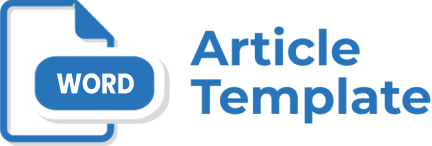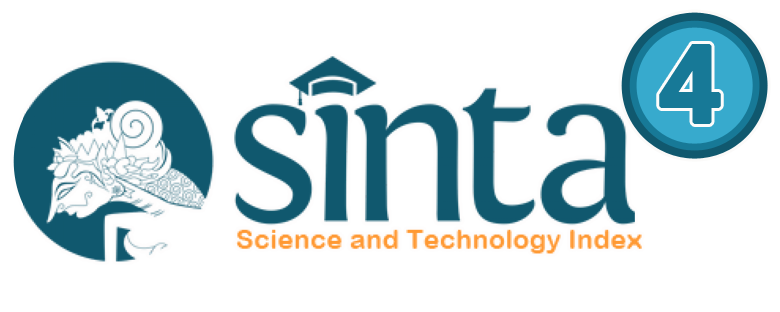- Focus and Scope
- Section Policies
- Peer Review Process
- Open Access Policy
- Archiving
- Publication Ethics
- Author Fees
- Plagiarism Policy
Focus and Scope
The scope of the articles published in Jurnal Hukum dan Pembangunan Ekonomi (HPE) with a broad range of topics in the fields of Civil Law, Criminal Law, International Law, Administrative Law, Islamic Law, Constitutional Law, Environmental Law, Procedural Law, Law and Economic, Sociology of Law and another section related contemporary issues in Law
Jurnal Hukum dan Pembangunan Ekonomi is an open access journal which means that all content is freely available without charge to the user or his/her institution. Users are allowed to read, download, copy, distribute, print, search, or link to the full texts of the articles, or use them for any other lawful purpose, without asking prior permission from the publisher or the author.
Section Policies
Articles
Review Articles
Peer Review Process
Manuscript (research article, review article, and case report) will be submitted by author to the editorial board. Manuscript is made either in English or Indonesian with abstracts written in English and Indonesian. The manuscript then be reviewed by the editorial board whether the manuscript will be process to review stage or put at waiting list for a temporary. Editorial board will review the format of the manuscript (submitted by the authors) whether it’s suit with the formatting of Jurnal Hukum dan Pembangunan Ekonomi (guideline is available) and plagiarism check. Manuscript indicated to plagiarism >20% will have to be re-worked or rejected if could not fulfil the requirement.
Manuscript passed this process will continue to double-blind peer-review process. The reviewer of the manuscript is someone who understands the main topic of the manuscript and able to give a relevant review to guide the editorial board in publishing the manuscript. The manuscript will be submitted to the reviewer for 2-4 weeks after the manuscript was submitted to the reviewer. The main concern of the reviewer is the scientific and ethical content of the manuscript. After the review completed, the result of the review can be submitted to the editorial board through the Open Journal System (OJS) by the reviewer itself.
After the manuscripts passed the review stage, reviewers' comment will be reviewed by the editorial board about the appropriateness and validity of the manuscript. The editorial board will state the editorial decision. The manuscript may be directly accepted, declined, or require revision. If the reviewer stated the manuscript is ready to be published without any revision, then the manuscript can directly enter the publishing phase immediately. Meanwhile, if the reviewer stated the manuscript needs some revisions by the author about the scientific content or ethical content, then the editorial board will return the manuscript and comments to the author to be revised according to the review of the reviewer.The recommended or type of the revision by the reviewer can be whether a major revisions or minor revisions depending on the review of the reviewer. Revised manuscript will be checked by the editorial board for tracking changes and reported to the reviewer, whether considered to be accepted or required further revision.
In the publishing phase, editorial board will summarize the manuscript that has been stated ready to publish in 1 volume. The included manuscripts in 1 volume is summarized according to the internal discussion of the editorial board. The author of the manuscripts will be given a notification about the date and volume of publication by an automated email by the Open Journal System.
Open Access Policy
This journal provides immediate open access to its content on the principle that making research freely available to the public supports a greater global exchange of knowledge.
Authors of articles published remain the copyright holders and grant third parties the right to use, reproduce, and share the article according to the Creative Commons Attribution 4.0 International License license agreement.
Archiving
This journal utilizes the LOCKSS system to create a distributed archiving system among participating libraries and permits those libraries to create permanent archives of the journal for purposes of preservation and restoration. More...
Publication Ethics
Publication Ethics and Malpractice Statement
Jurnal Hukum dan Pembangunan Ekonomi (p-ISSN: 2338-1051; e-ISSN: 2777-0818) is a peer-reviewed journal published by Master of Law - Postgraduate Program, Faculty of Law, University of Sebelas Maret.This statement clarifies ethical behaviour of all parties involved in the act of publishing an article in this journal, including the author, the chief editor, the Editorial Board, the peer-reviewer and the publisher. This statement is based on COPE’s Best Practice Guidelines for Journal Editors.
Ethical Guideline for Journal Publication
The publication of an article in a peer-reviewed Jurnal Hukum dan Pembangunan Ekonomi is an essential building block in the development of a coherent and respected network of knowledge. It is a direct reflection of the quality of the work of the authors and the institutions that support them. Peer-reviewed articles support and embody the scientific method. It is therefore important to agree upon standards of expected ethical behavior for all parties involved in the act of publishing: the author, the journal editor, the peer reviewer, the publisher and the society.
Master of Law - Postgraduate Program, Faculty of Law, University of Sebelas Maret as publisher of Jurnal Hukum Pembangunan dan Ekonomi takes its duties of guardianship over all stages of publishing extremely seriously and we recognize our ethical and other responsibilities. We are committed to ensuring that advertising, reprint or other commercial revenue has no impact or influence on editorial decisions. In addition, Master of Law - Postgraduate Program, Faculty of Law, University of Sebelas Maret and Editorial Board will assist in communications with other journals and/or publishers where this is useful and necessary.
Publication Decisions
The editor of the Jurnal Hukum dan Pembangunan Ekonomi is responsible for deciding which of the articles submitted to the journal should be published. The validation of the work in question and its importance to researchers and readers must always drive such decisions. The editors may be guided by the policies of the journal's editorial board and constrained by such legal requirements as shall then be in force regarding libel, copyright infringement and plagiarism. The editors may confer with other editors or reviewers in making this decision.
Fair play
An editor at any time evaluate manuscripts for their intellectual content without regard to race, gender, sexual orientation, religious belief, ethnic origin, citizenship, or political philosophy of the authors.
Confidentiality
The editor and any editorial staff must not disclose any information about a submitted manuscript to anyone other than the corresponding author, reviewers, potential reviewers, other editorial advisers, and the publisher, as appropriate.
Disclosure and conflicts of interest
Unpublished materials disclosed in a submitted manuscript must not be used in an editor's own research without the express written consent of the author.
Duties of Reviewers
Contribution to Editorial Decisions
Peer review assists the editor in making editorial decisions and through the editorial communications with the author may also assist the author in improving the paper.
Promptness
Any selected referee who feels unqualified to review the research reported in a manuscript or knows that its prompt review will be impossible should notify the editor and excuse himself from the review process.
Confidentiality
Any manuscripts received for review must be treated as confidential documents. They must not be shown to or discussed with others except as authorized by the editor.
Standards of Objectivity
Reviews should be conducted objectively. Personal criticism of the author is inappropriate. Referees should express their views clearly with supporting arguments.
Acknowledgement of Sources
Reviewers should identify relevant published work that has not been cited by the authors. Any statement that an observation, derivation, or argument had been previously reported should be accompanied by the relevant citation. A reviewer should also call to the editor's attention any substantial similarity or overlap between the manuscript under consideration and any other published paper of which they have personal knowledge.
Disclosure and Conflict of Interest
Privileged information or ideas obtained through peer review must be kept confidential and not used for personal advantage. Reviewers should not consider manuscripts in which they have conflicts of interest resulting from competitive, collaborative, or other relationships or connections with any of the authors, companies, or institutions connected to the papers.
Duties of Authors
Reporting standards
Authors of reports of original research should present an accurate account of the work performed as well as an objective discussion of its significance. Underlying data should be represented accurately in the paper. A paper should contain sufficient detail and references to permit others to replicate the work. Fraudulent or knowingly inaccurate statements constitute unethical behaviour and are unacceptable.
Data Access and Retention
Authors are asked to provide the raw data in connection with a paper for editorial review, and should be prepared to provide public access to such data (consistent with the ALPSP-STM Statement on Data and Databases), if practicable, and should in any event be prepared to retain such data for a reasonable time after publication.
Originality and Plagiarism
The authors should ensure that they have written entirely original works, and if the authors have used the work and/or words of others that this has been appropriately cited or quoted.
Multiple, Redundant or Concurrent Publication
An author should not in general publish manuscripts describing essentially the same research in more than one journal or primary publication. Submitting the same manuscript to more than one journal concurrently constitutes unethical publishing behaviour and is unacceptable.
Acknowledgement of Sources
Proper acknowledgment of the work of others must always be given. Authors should cite publications that have been influential in determining the nature of the reported work.
Authorship of the Paper
Authorship should be limited to those who have made a significant contribution to the conception, design, execution, or interpretation of the reported study. All those who have made significant contributions should be listed as co-authors. Where there are others who have participated in certain substantive aspects of the research project, they should be acknowledged or listed as contributors. The corresponding author should ensure that all appropriate co-authors and no inappropriate co-authors are included on the paper, and that all co-authors have seen and approved the final version of the paper and have agreed to its submission for publication.
Hazards and Human or Animal Subjects
If the work involves chemicals, procedures or equipment that have any unusual hazards inherent in their use, the author must clearly identify these in the manuscript.
Disclosure and Conflicts of Interest
All authors should disclose in their manuscript any financial or other substantive conflict of interest that might be construed to influence the results or interpretation of their manuscript. All sources of financial support for the project should be disclosed.
Fundamental errors in published works
When an author discovers a significant error or inaccuracy in his/her own published work, it is the author’s obligation to promptly notify the journal editor or publisher and cooperate with the editor to retract or correct the paper.
Author Fees
This journal charges the following author fees.
Article Publication: 1.000.000.00 (IDR), If the paper is accepted for publication, author will be asked to pay an Article Publication Fee to cover publications costs.
The authors will be free for submission charges.
For Libraries/Individual, can read and download any full-text articles for free of charge.
Plagiarism Policy
Every manuscript submitted for publication in Jurnal Hukum dan Pembangunan Ekonomi is checked for plagiarism after submission and before being sent to an editor for editorial review.
Jurnal Hukum dan Pembangunan Ekonomi uses ‘Turnitin Software’ to detect instances of overlapping and similar text in submitted manuscripts.
Working Process:
- Editorial Team checking manuscript on offline and online database manually (checking proper citation and quotation);
- Editorial Team checking manuscript by using Turnitin app. If it is found plagiarism indication (more than 25%), the board will reject the manuscript immediately.









